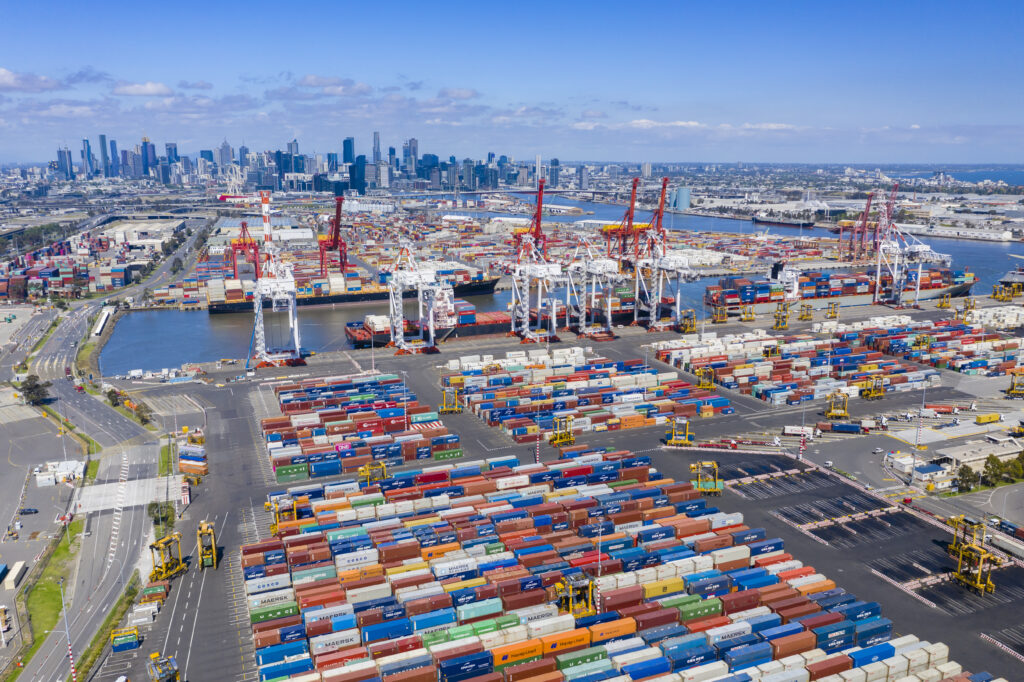The proposed reforms of the Simplified Trade System Implementation Taskforce (STS Taskforce) have attracted significant attention, largely as a result of the Simplified Trade System Summit, the release of the Simplified Trade System Consultation Paper (which received 29 responses) and, most recently, the publication ‘STS Progress and Opportunities’ released on 29 August 2023.
STS Progress and Opportunities
The STS Progress and Opportunities (Publication) outlines the reforms and opportunities the Australian Government is prioritising. The Publication also provides a summary of the outcomes delivered by the STS Taskforce and partner agencies, as well as a view of the opportunities ahead.
The Publication refers to the extensive engagement journey both with government agencies and with the private sector. The STS Taskforce summarised ‘six common pain points for business’ as follows:
- Opaque and inconsistent processes
- Hard to access information.
- Complex regulations
- Inflexible technology
- Duplicative processes
- Border delays
Based on extensive consultation, there is significance in these findings and, to my mind, reflect the fundamental failings of the regulation of the movements of goods at the Australian border.
The Publication also contains specific examples of the ‘pain points’ for business, as well as details of what would be needed to enhance the operability of the regulation at the border. Appendix A to the Publication includes a valuable record (or summary) of the reforms by agencies which are already working to reduce time and costs to business. That summary emphasises the need to have one agency (a permanent STS Agency) established with a suitable leader and workforce having accountability to a senior government minister. That new agency can oversee and co-ordinate the relevant efforts of agencies and initiate further developments.
The role of the new agency could also take over the conduct of the National Committee on Trade Facilitation (NCTF) and all its sub-committees and advisory groups from the Australian Border Force (ABF). Professor David Widdowson, CEO of the Centre for Customs and Excise Studies and Professor at Charles Sturt University, has written in detail about such an approach in his article entitled, ‘Australia’s Simplified Trade System is still a work in progress’ published in the ‘East Asia Forum’. The new agency would operate across all other relevant agencies (as has the Taskforce) and allow those agencies to conduct their own research and trade facilitation and modernisation subject to review by the new agency. The existing agencies can then focus on their many substantive operational challenges.
In my view (and those of others), it would be entirely counter-productive to the Australian supply chain reform agenda if the work of the STS Taskforce is simply allowed to stop and disappear, especially when momentum on the work completed to date is beginning to accelerate.
As mentioned earlier, Appendix A to the Publication sets out some of the work being undertaken by various border agencies. Since the sitting of Federal Parliament commenced on 4 September 2023, there have been two further developments in that work.
- Parliament finally passed the Customs ‘Controlled Trials’ legislation to permit the establishment of the ‘Regulatory Sandbox’ to trial new practices which may enhance the supply chain. This was the subject of an earlier published article.
- Parliament passed an amendment bill aimed to simplify administrative processes for exporters of agricultural products in the Export Control Amendment (Streamlining Administrative Processes) Bill 2022 which passed through both Houses of Parliament on 4 September 2023. Details of the Bill are to be found here and a media release from the Minister of Agriculture Fisheries and Forestry here. The bill will also allow for the introduction of both civil and criminal penalties, along with the use of infringement notices for any breaches of information sharing arrangements.
Furthermore, the Technology Trade Working Group and the Trade Initiatives Facilitation Working Group, both established as working groups assisting the NCTF conducted very constructive meetings between representatives of the private sector and members of the border agencies working in the trade facilitation and modernisation sections of relevant border agencies in late August 2023. Both meetings were facilitated by the ABF as the agency responsible for the NCTF and discussed issues such as the ABF’s work on developing a new ‘Digital Verification Platform’, the basis for sharing of information between border agencies and the basic principles which would support our version of the Trade Single Window.
Conclusion
The release of the Publication, and the ongoing work of the STS Taskforce and government agencies seem to now indicate momentum in this reform process. However, Australia is still some way behind other international developments, including initiatives in the European Union, the United Kingdom, and the United States. Hopefully, there is continued bipartisan political support and allocation of adequate resources within a framework co-ordinated by an agency such as that currently led by the STS Taskforce. After all, if the AUKUS alliance, the Five Eyes alliance and other alliances for security purposes are secure enough for critical defence purposes then they presumably could form the basis for the start of associated trade alliances for advancing trade facilitation and modernisation initiatives.
